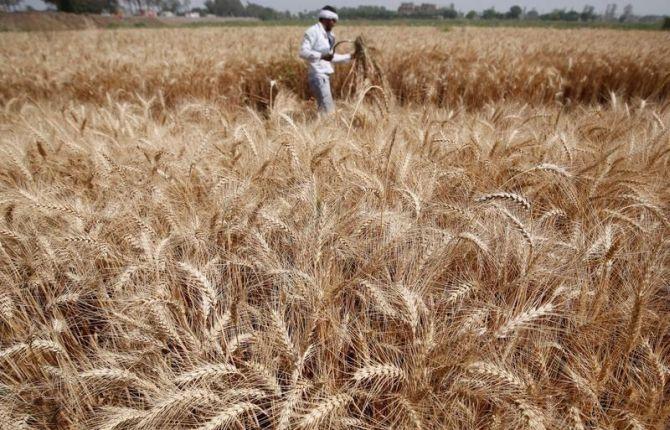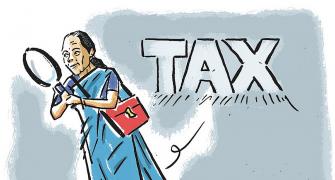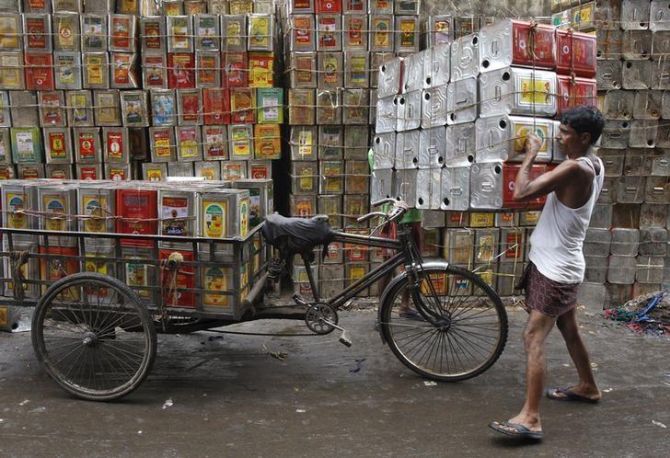The surge in wheat export from India owing to the Ukraine crisis has once again demonstrated how farmers in states that have flexible marketing frameworks and low taxes benefit more from an emerging situation.

The bulk of the wheat exported from India, trade and industry sources say, is being sourced at rates significantly higher than the state-mandated price of Rs 2,015 per quintal in Madhya Pradesh (MP), Uttar Pradesh (UP), and Gujarat — states which have low mandi taxes compared to Punjab and Haryana.
This is not only benefiting farmers there but could also lead to significant savings for the states in procurement costs in the months to come.
Reports in local dailies in Punjab say big companies which had opted to purchase wheat at mandis there at rates higher than the minimum support price (MSP) are opting out and instead buying the commodity from MP, Gujarat, and UP, where the taxes are almost 6 per cent less than in Punjab.
Punjab, say reports, imposes 3 per cent each as market development fee (MDF) and rural development fee (RDF), along with the arthiya commission of 2.5 per cent, which makes wheat approximately Rs 145 per quintal costlier than in other parts.
At the same time, UP and Rajasthan impose 2.5-3.5 per cent as tax and commission, while MP imposes just around 2 per cent in tax, commission, and cess.
For exporters, the MP government has even decided to reimburse the 1.5 per cent mandi cess.
“Private wheat exporters are less active in Punjab than in MP, Rajasthan, and Gujarat despite the boom, partly due to high taxes and also because of the distance from ports.
"We want the Centre to either declare a bonus over the MSP on wheat for Punjab farmers to compensate for their loss of earnings or incentivise wheat exporters to purchase from Punjab and Haryana,” Ravinder Cheema, head of the Punjab Arthiya (middlemen) Association, told Business Standard.
Cheema said reducing the mandi tax in Punjab (around 6 per cent, which is among the highest in India) to align it with Madhya Pradesh or elsewhere was difficult because of there being limited revenue sources outside agriculture.
However, private traders and exporters say if the new state government lowers the mandi tax, they can look to purchase for exports — something which the Bhagwant Mann government could consider.
Meanwhile the central government is in the process of setting up a panel on implementing the minimum support price (MSP) mechanism as promised by Prime Minister Narendra Modi while announcing the repeal of the three farm Acts last year.
Union Agriculture Minister Narendra Singh Tomar has said the panel, the names of whose members has been sought from various stakeholders, including the agitating farmers under the banner of the Samyukta Kisan Morcha (SKM), is expected to dwell on issues concerning MSP but might not take up the critical question of legalising it.
Legalising MSP has been one of the prime demands of the agitating farmers, but for now, by all accounts, it does not figure in the scheme of things.
Making MSP effective has its own challenges, and so far barring wheat and rice, it has been largely remained confined to a few crops and select geographies.
Though state procurement at MSP for crops other than wheat and rice has grown manifold in the past few years, when it comes to scale and size, it is small compared to cereals.
A recent working paper by the NITI Aayog argues that.
It says public procurement is concentrated in cereals, done mostly in states such as Punjab and Haryana, where water stress is at its highest.
“It must be pointed out that one of the greatest incentives for farmers in Punjab, Haryana, and Western Uttar Pradesh, amongst others, is public procurement of cereals at minimum support prices (MSP),” the paper noted.
Of late, states like Madhya Pradesh for wheat, and Telangana, Chhattisgarh, Odisha, and Jharkhand have been added for rice.
In other words, assured procurement at MSP is one of the greatest allurements responsible for farmers preferring wheat and rice in states where the purchase mechanism is strong.
Weaning farmers away from them will require an adequate and perhaps equal assured returns either through expanding the procurement basket or by creating avenues outside official channels.
A high-powered panel of experts constituted by the Supreme Court on the three farm laws in its report, made public recently, has made suggestions on weaning away famers in Punjab and Haryana from the vicious cycle of wheat and rice.
The panel advocated a road map for gradual diversification from paddy to more sustainable high-value crops.
This should be funded through budgetary resources by the Central government and the state governments concerned.
That apart, it also advocated a cap on the procurement of wheat and rice to align it with the needs of the public distribution system (PDS) and leave procurement at MSP to states to blend it into their agriculture priorities.










